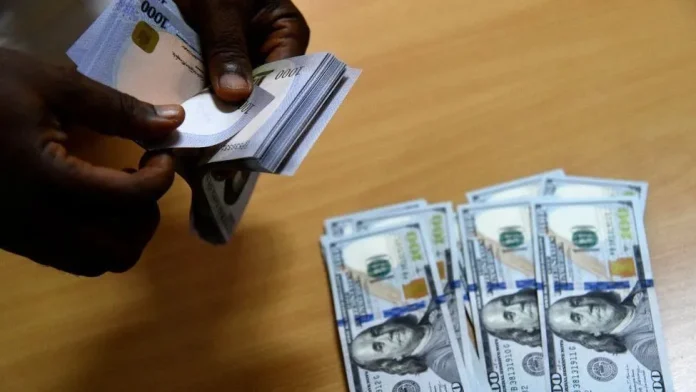At the start of the week, the Nigerian naira gained more value at the autonomous foreign exchange market despite several attempts to stabilize the local currency. According to data, exchange rates changed in different directions by Monday’s closing of business.
The positive FX gap created short-term demand at the parallel market. FX consumers saw that it was less expensive to purchase from the unauthorized market while the official rate attracted higher quotes, which led to further depreciation of the naira.
The apex bank unveiled a plan to pay off the roughly $2.2 billion in foreign exchange debt it owed banks, which was pending the reconciliation of five local lenders. Foreign investors rushed to open market operations (OMO bills) auctions, suggesting that the authority’s reform was beginning to bear fruit.
The Central Bank of Nigeria (CBN) has continued to take decisive steps to ensure the naira regains its strength. Yemi Cardoso, CBN Governor, has maintained the naira is grossly undervalued.
Analysts said for the local currency to reclaim its losses and trade steadily, there will be a need for the supply side to improve strongly – perhaps to a level seen before the pandemic.
“It is important that there are enough US dollars and other foreign currencies supply in the economy for the naira to stabilise”, research analysts at LSintelligence Associates said in an email correspondence.
Data from FMDQ platform where exchange rate data are publicised showed that the naira appreciated by 0.91% to close at ₦1,534.19 per US dollar in the official market.
In the parallel market, Naira closed at N1,585 against the US dollar on Friday. Now, the gap between the two exchange rates has inched to N51 versus N28 at the beginning of the week due to renewed demand pressures in the parallel market.
The CBN has announced that it will sell $20,000 to eligible Bureau De Change Operators while it has withdrawn more than 4100 licences from regulatory breaches. The CBN has also shown a move to recommence FX market intervention after a long holiday from FX injection.
A slew of analysts told MarketForces Africa that the decision to stop FX market intervention by the monetary authority was a result of a low external buffer.
The foreign reserve has remained tight amidst questions on allowable spending. Unfortunately, Nigeria’s oil swap deal has reduced level of inflows to boost Nigeria’s foreign reserves to a level sufficient to support the naira – sufficiently.
In the global commodity market, Brent crude increased by 0.62% to close at $84.07 per barrel on Monday. Similarly, WTI crude advanced by 0.46% to $80.34 per barrel.













